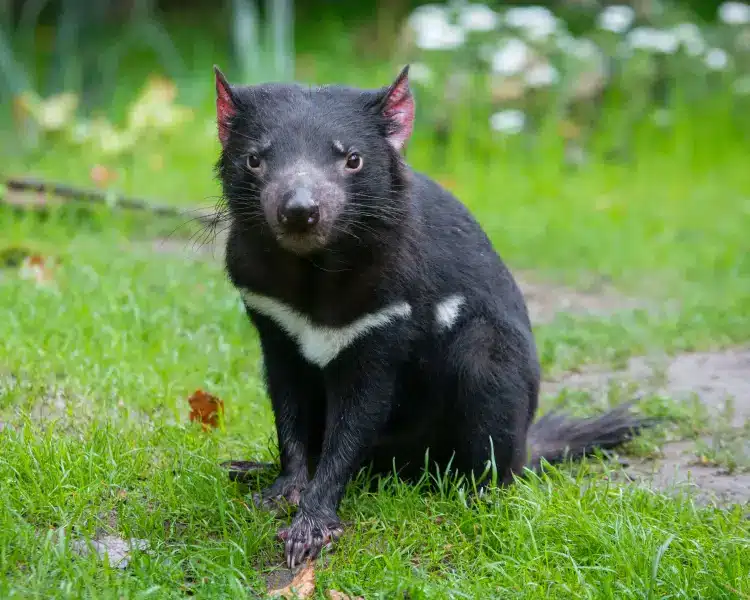Wondering what went right this week in the conservation world? We’ve got you covered with our Conservation Optimism Round-Up! We are collating stories of optimism from around the globe so that you never miss your dose of weekly motivation.
1. Australia welcomes back the Tasmanian Devil after 3000 years
“After 3,000 years, Tasmanian devils are back on mainland Australia. In a landmark move for conservation, 26 of these carnivorous marsupials have been released into a protected sanctuary in Barrington Tops, New South Wales.”
'The return of Tasmanian devils is not just about species recovery—it’s about ecosystem restoration.' #rewilding #conservationoptimismhttps://t.co/ldsis64vhe
— Citizen Zoo (@CitizenZoo) March 2, 2025
2. American West being rewilded to solve wild horse crisis
“Inspired by her rescue and frustrated by the industry, Kalimian started Rewilding America Now, an organization that works to recreate the natural environment in public and private lands and appropriately rehome wild horses.”
“When we let nature do what nature knows how to do, the system comes back to life." #rewilding #conservationoptimismhttps://t.co/kfJf3c5mcY
— Citizen Zoo (@CitizenZoo) March 1, 2025
3. Boosting flood resilience through tree plantation
“A project to help re-establish an area of Dartmoor’s ancient woodland and reduce the risk of flooding around the River Erme is under way, Dartmoor National Park Authority has said. The authority said the planting trial, which uses a Japanese approach known as the “Miyawaki method”, was thought to be one of the first of its kind used in Europe to improve flood resilience.”
"While this project delivers improved flooding resilience, it will also increase biodiversity helping to further restore nature through natural regeneration in the coming years." #rewilding #conservationoptimismhttps://t.co/CmHbIDCQWr
— Citizen Zoo (@CitizenZoo) February 26, 2025
4. Wildlife bouncing back in Hackney Marshes
“Kestrels, weasels, shrews, wood mice and other small mammals had been slowly disappearing from around the River Lea until hundreds of volunteers began rebuilding their ecosystems with piles of logs, artificial food caches and by selectively cutting trees, known as coppicing.”
"In the midst of our biodiversity crisis, this project shows what can be done with local knowledge and dedication in partnership with the council." #rewilding #conservationoptimismhttps://t.co/VuhN1vEhes
— Citizen Zoo (@CitizenZoo) February 27, 2025
5. Tradition meets science in Australia’s rainforests
“Located in patches embedded in a mosaic pattern within eucalypt savanna, these species-rich ecosystems are collectively known as Kimberley Monsoon Rainforests (KMR). They’re intrinsically linked to the culture and livelihoods of local First Nations communities who have harvested from and cared for the patches for millennia.”
Indigenous rainforest stewardship in #Australia is my news to me good news for Mar 1. It can feel a bit lonely posting this kind of story but I won't let the gloom obliterate the points of light #EarthOptimism #BeyondTheObituaries https://t.co/sChkKJ9XbD
— Dr. Nancy Knowlton (@SeaCitizens) March 1, 2025
6. Great Lakes Fisheries Are Minimizing Waste
“This group helped spearhead what has become an industry success story for sustainability and economic recovery following the introduction of strict limits to prevent collapse of the Atlantic cod fisheries in the 1990s. Aimed at helping create a more sustainable fishery and helping one of the country’s largest industries rebound, the new limits instituted by the Icelandic government greatly reduced the amount of fish the fishing fleet is allowed to catch.”
Waste not want not - honor the fish. My news to me good news for Feb 26 #EarthOptimism #BeyondTheObituaries https://t.co/MJ5gHU1wKw
— Dr. Nancy Knowlton (@SeaCitizens) February 26, 2025
7. Major restoration work at South London reserve
“The council is working with environmental groups Citizen Zoo and The Community Brain to rewild the 42-ha nature reserve. The reserve is the biggest in Kingston and is made up of seven large fields. Last year, the authority won more than £500,000 to carry out the works, including £238,000 from The National Lottery Heritage Fund and £149,477 from the Mayor’s Rewild London Fund.”
"Through innovative rewilding measures inspired by rural projects such as mixed grazing regimes, we aim to restore and enhance the site's ecological balance while honouring its rich cultural heritage." #rewilding #conservationoptimismhttps://t.co/lDVvwHDNhK
— Citizen Zoo (@CitizenZoo) February 25, 2025
Have a story to share for our weekly round-up? Use #ConservationOptimism on Twitter, Facebook, LinkedIn and Instagram!


